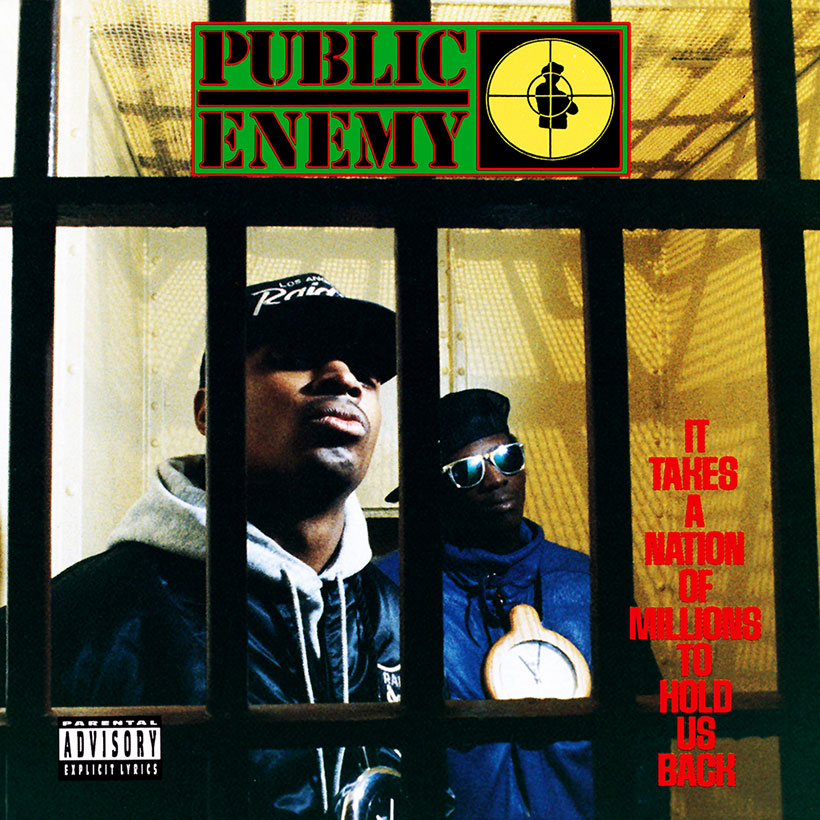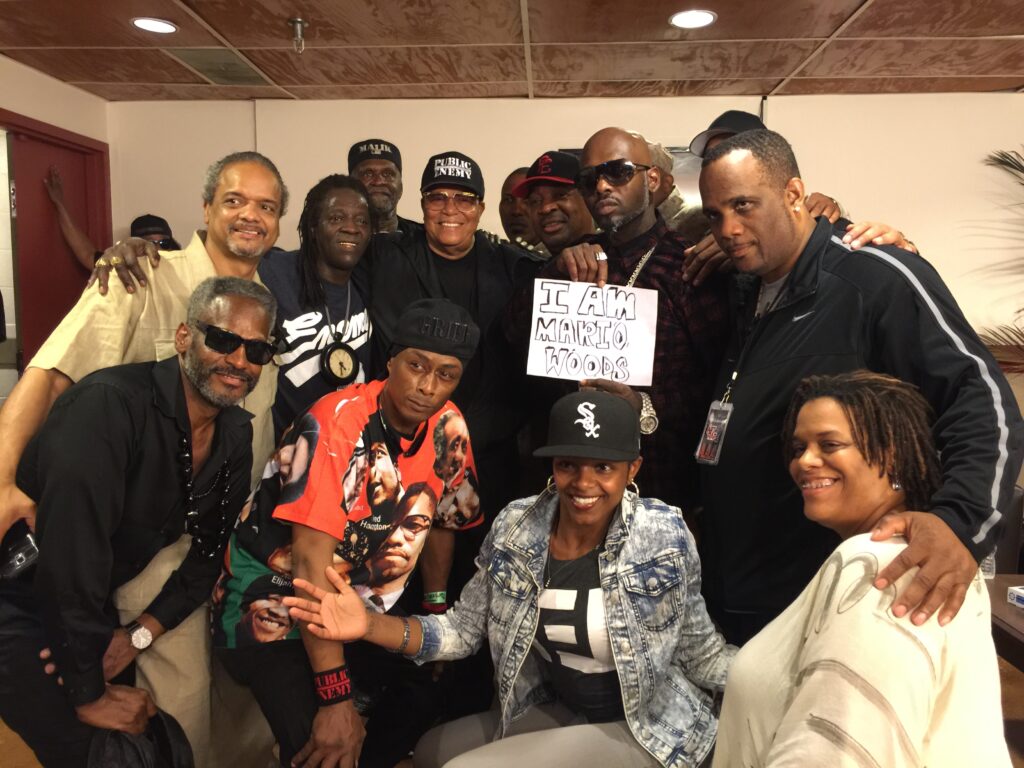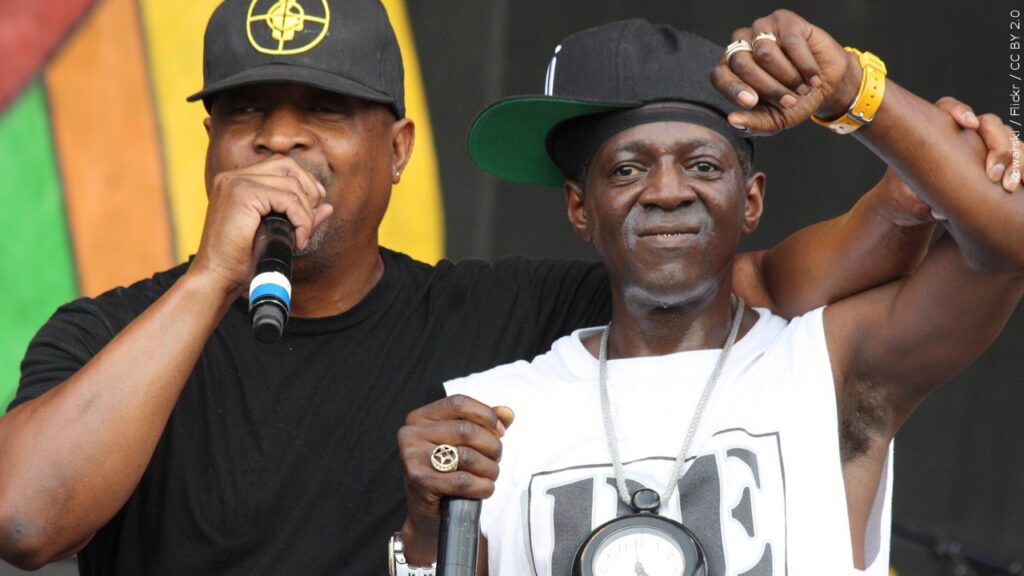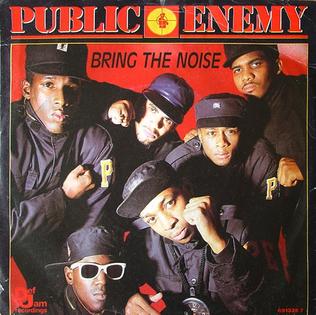Chuck D is a living legend. As co-founder and frontman of the iconic rap group Public Enemy, he is a hip hop industry pioneer, who advocates the independent delivery of music to the public and helped lead the digital download revolution. In a recent comprehensive interview with Final Call National Correspondent Charlene Muhammad, Chuck D shared his viewpoint on hip hop at 50, its worldwide impact, and personal influences on him and the genre to date. Below is part 1 of excerpts from that interview.
CHARLENE MUHAMMAD (CM): Let me get your initial thoughts about hip hop 50 years down the road, for a genre which some people thought wouldn’t last.
CHUCK D (CD): Well, I’m fortunate to be at least 13 years longer than hip hop itself. So that gave me an overview of what it really was, where it came from. And I’ve seen it from its infancy in the beginning. I think my accountability and responsibility to see something come in at the beginning is to make sure that if it goes from a tricycle to a vehicle, make sure that nobody drives it off the road into a ditch.

I’ve been fortunate to see the art form. But also, I was fortunate to come from a family and a community that said that hip hop might be a start, but it’s not the start of Black people’s culture. It’s just a term for a particular time and a particular moment and place. But we’ve always been creative people.
In the elements of hip hop, which are DJing, MCing, dance, graffiti, and B-boying (or break dancing), the creativity is simply MCing is vocalization, DJing is musicianship. B-boying is dance culture, and graffiti is art culture. And we’ve been, as a people, inventive and innovative in this for more years than we can count, hundreds and 1,000s of years. So, we don’t want to say hip hop invented anything. It just remixed everything. And I think that’s the point. That quote came from the great Lord Jamar of Brand Nubian.
CM: Thank you! Where do you think we are now?
CD: Well, we are now, Sister Charlene, at a crossroads where in this century people listen with their eyes, and they’re ‘screenagers.’ From five to 95, they’re ‘screenagers,’ watching the screen. And a lot of times when you’re watching the screen, especially when it’s digital, that means it can appear and disappear. So really, we could be duped by the misinformation of it all. You know, the Teachings of the Nation of Islam are really basic.
They’re not really invented by the Nation of Islam. It’s grasped by the Nation of Islam. They understand the knowledge of self saves you from everything. You’ve got to know who you are and what you’re not. And I think that even comes down to our culture, our music, our contributions, how we were able to come up with nothing, what seemed like nothing, and come up with something.

So, I think when it comes down to this hip hop, if we don’t understand that we’re greater than that, and it comes out of us, then the narrative will always be stolen, taken away, and redefined. And that’s the fear factor right about now; making sure that we have a knowledge of self and then we’ll know how to define it. And so it won’t be able to be snatched as easy as some art forms in the past. But we already see it happening. … We don’t want to take away from other people’s contributions to it.
We believe that the innovation sparked from a Black spark, but that always came because the ability to be able to speak for ourselves, be boisterous, be confident, was negated. So, it always came out in arts, because our voices were snatched in this civilization or I think I’m giving civilization too much credit (he chuckles). In this lack of civilization, our voices and our state of being was snatched away from us. So, our arts always spoke three times as loud.
We don’t understand the nuances when maybe a person says, ‘Well, you know, I want to work the job, but it seems like my job goes easier when I’m playing some music,’ or ‘It seems like if I’m able to do some doodling to the side, with my pen, I’ll come up with some artwork, as I’m doing this mundane task. It helps me move along with my day.’ These innate things are kind of set into our DNA and RNA anyway, but we don’t know why. But those are some of the reasons why art has always led to us expressing ourselves and even galvanizing our movement.
So, we gotta watch out when somebody tries to define what comes out of us, because that’s not a far step from people trying to define who and what we are and we’re at that crossroads in 2023, like never before.
CM: Thank you. You touched on one of my questions, which was going to be about the Nation of Islam’s influence. But what do you think about the overseas appeal of Hip Hop?

CD: Well, I was taught by Brother (Abdul) Akbar Muhammad (Nation of Islam International Representative) all the nuances of the world. I think, out of everybody in the Nation of Islam, my personal relationship with Brother Akbar Muhammad has really illuminated my understanding that we are everywhere. So, because we are everywhere, everything that we do is everywhere, as well.
And so, I never looked at music, especially after my first year, as making music for the United States of America. I always looked at we are a world people. I’m a ‘eartherson.’ We are the planet Earth. So, understanding that creativity and what we do, and hip hop and rap music, we know it’s gonna be infectious. We know people are gonna gravitate to it, because its culture transcends languages. Culture also transcends governments.
Cultures, at many times, transcend religions if they happen to go sideways. So, I think, when you actually infuse all culture as a universal language, it connects human beings through our similarities and not societal differences. And to me, that’s the seed of why it works overseas. There’s seven seas on the planet, as well as seven continents (laughter), so overseas is everywhere.

I think we put a lot of emphasis on the United States of America being the center point. And I think that, yes, it had a starting point at a particular time as the definition of rap music and hip hop. But as that 1984 record says, with the movement started by the late, great Harry Belafonte, ‘We Are the World.’ Hip Hop is basically saying, we are the world. So, we’re not surprised. And it was the Nation of Islam that was able to take Public Enemy to countries that we would never go to, and to “First World” countries.
We were able to do Europe and parts of Asia and the United States and North America through that circuit, but the Nation of Islam is going to make sure that we can go to Ghana, Dominica, parts of the Caribbean, the Virgin Islands, places where Black folk were at, and not just Black folk. People who are indigenous to that particular territory, and be able to speak some truth to power but also truth to pride, you know? I mean, power is like, what good is power, if you don’t know how to process it, and use it and distribute it for a people going forward?
It’s always given me the oil in the fuel to speak. It keeps my engines greased when you talk about art, and culture, and music, and stuff like that. Art is in everybody. The key is that everybody can’t get it out. So, it’s important for the community to support the arts. Because if the community doesn’t support the arts, you can’t expect the arts to support or protect the community.
Stay tuned for part 2 in an upcoming edition of The Final Call.













